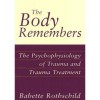Race & Mental Health
Race & Mental Health
On The Web
The Afiya Trust – www.afiya-trust.org
The Afiya Trust is a national charity that works to reduce inequalities in health and social care provision for people from racialised communities.
Black Mental Health UK – www.blackmentalhealth.org.uk
Black Mental Health UK’s focus is on empowering African Caribbean communities to improve the Black service user experience and reduce the over representation of Black people at the coercive end of psychiatric care.
Suman Fernando, Psychiatrist, Academic and Writer – www.sumanfernando.com
This site provides information on issues around ‘race’ and ‘culture’ in relation to mental health in western multi-ethnic societies, social and mental health care in low and middle income (‘third world’) countries, racism in psychiatry, and the ethics of mental health practice in a multi-ethnic society.
In Print
Bhui, K. (2002). Racism and Mental Health: Prejudice and Suffering. Jessica Kingsley; New edition.
Blofeld, J., Sallah, D., Sashidaran, S., Stone, R. & Struthers, J. (2003) Independent Enquiry into the Death of David Bennett: An independent enquiry set up under HSG(94)27. Norfolk, Suffolk & Cambridgeshire Strategic Health Authority
Fanon, F. (2001). The Wretched of the Earth. Penguin Modern Classics. New Edition.
Fanon, F. (2008). Black Skin, White Masks. Pluto Press; New edition.
Fernando, S. (2010) Mental Health, Race and Culture. (third edition) Palgrave Macmillan.
Fernando, S. (1995) Mental Health in a Multi Ethnic Society: A Mutli Disciplinary Handbook. Routledge.
Lipsedge, L. and Littlewood, R. (1997). Aliens and Alienists: Ethnic Minorities and Psychiatry. Routledge; third edition.
Said, E. (2003). Orientalism. Penguin Books; 25th Anniversary Ed with 1995 Afterword.


